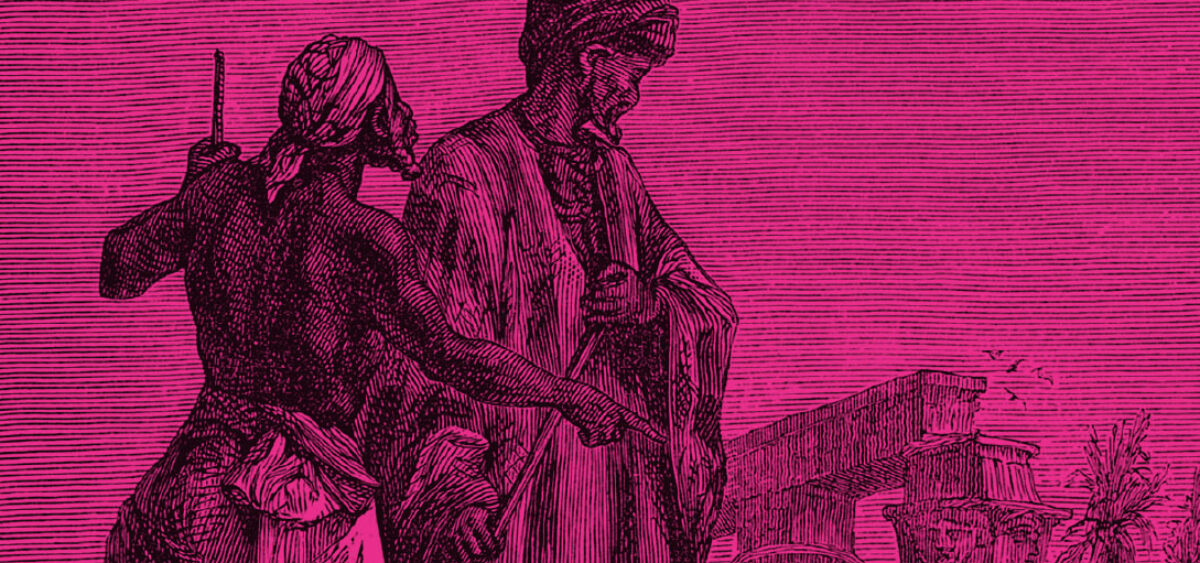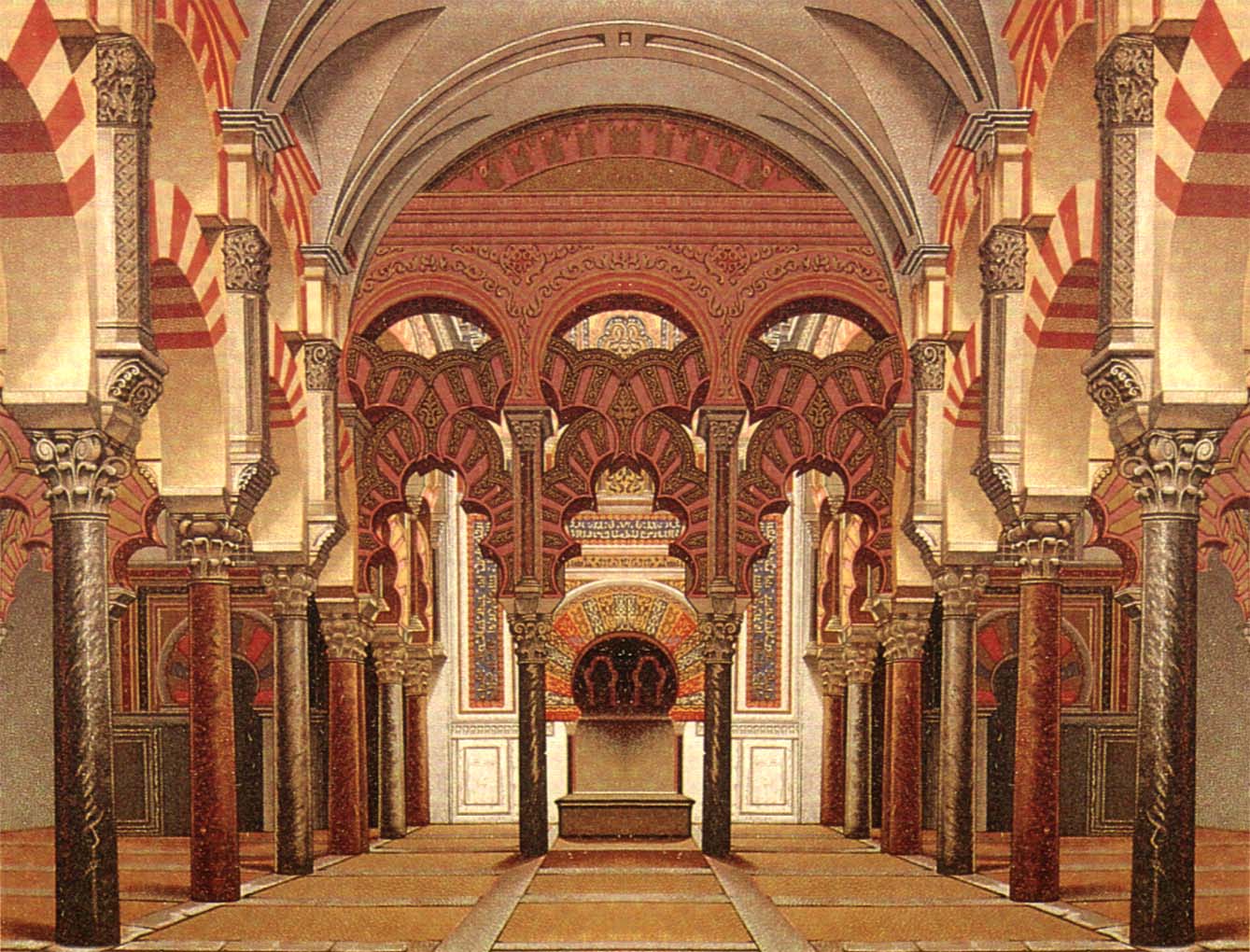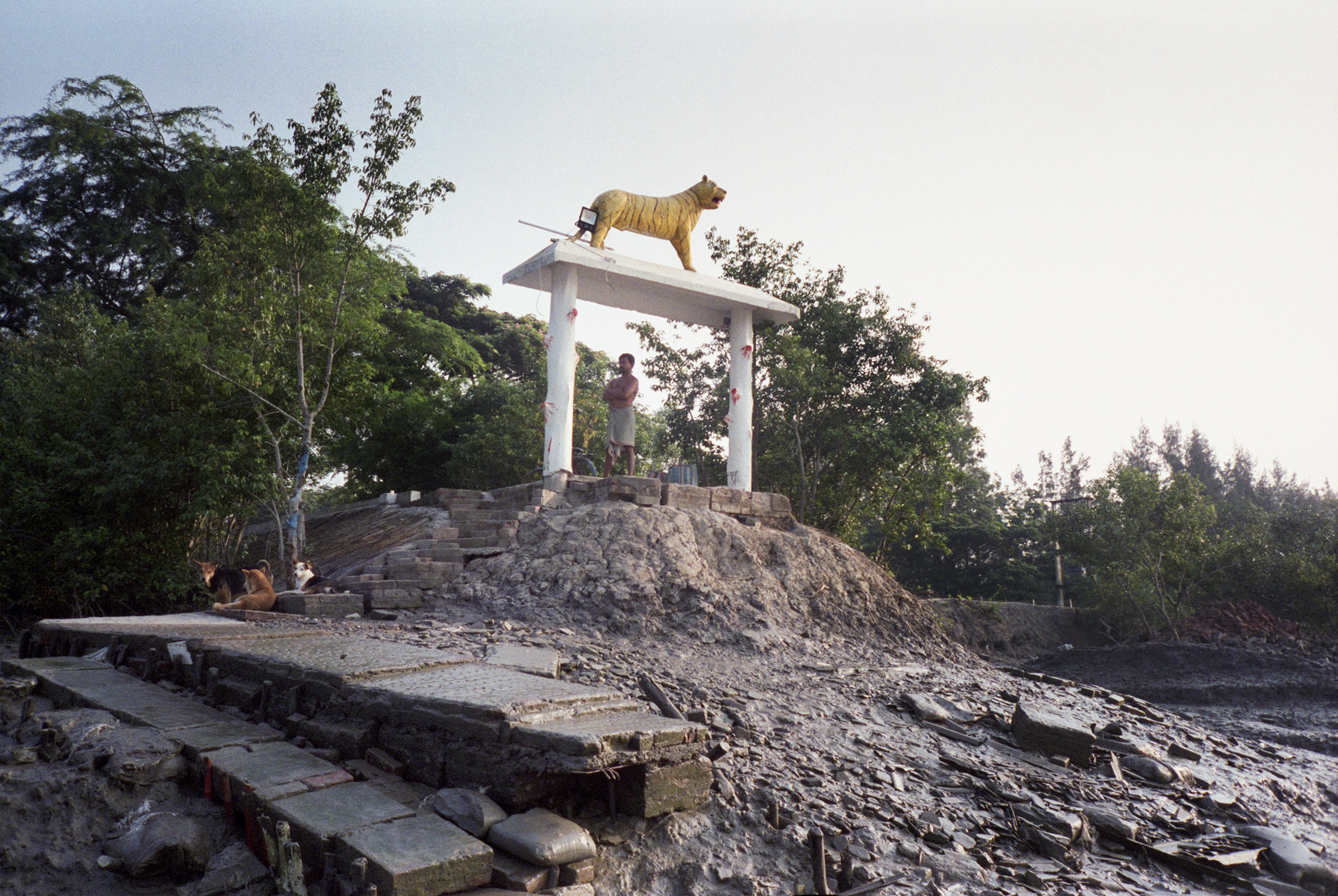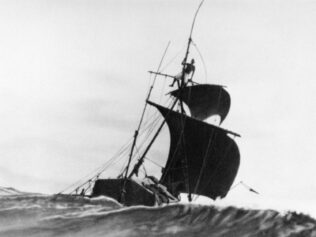
In a vote on the greatest traveller of all time, Muhammad Ibn Battuta would probably come out on top. He covered three times more distance – mostly over land – than Marco Polo, repeatedly acquiring great riches overnight, only to lose them as quickly, miraculously escaping brigands, rebels and despots.
When he left Tangiers in 1325, the 22-year-old Ibn Battuta intended to go on a pilgrimage to Mecca and Medina. The planned two-year Hajj would turn into a 30-year peregrination that, even in his lifetime, would earn him the moniker ‘the traveller of Islam’. After 700 years, we can easily extend that title and call him the greatest traveller of the pre-modern era – at least among those who left behind literary evidence. His work, A Gift to Those who Contemplate the Wonders of Cities and the Marvels of Travelling, as dictated to his secretary, describes a 117,000-kilometre route – three times further than that travelled by Marco Polo. (In English, Battuta’s work is often known as the Rihla, the Arabic word for a journey or travelogue. Quotes in this article are from the English translation: Travels in Asia and Africa 1325-1354, translated by H. A. R. Gibb (London, 1929) or The Rehla of Ibn Battuta: (India, Maldives and Ceylon) by Mahdi Husain, (Baroda, 1976)).
Migratory birds
The accounts of Battuta and Polo complement one another. Polo – a trader endowed with diplomatic talents, but no formal education – left behind a more accurate description of Far Eastern geography. The educated Battuta, who spoke Arabic and Persian (which at the time was understood even in China), had a deeper insight into the social ties of the countries he visited, mostly inhabited by fellow Muslims. His sense of ethnography also stands out: his attention is drawn as much by the realities of day-to-day life as by rituals. This great traveller became a geographer in spite of himself, and yet the huge multitude of rivers, mountains and towns found in the thousand-pages of his original work, and their locations, match up with contemporary knowledge.
As he left Tangiers, the young Moroccan probably planned to join the official Egyptian convoy heading to Mecca from Alexandria. He wasn’t wealthy. He left on a donkey, by himself. But he was well-educated in Sharia law, an asset that would pay off throughout his journey. To reach Egypt, he had to cross the sun-baked Maghreb teeming with highwaymen who preyed on travellers, and so he joined some trading convoys. This first, 10-month stage of his trip already revealed some of his personality traits. When he was struck down with fever in Ifriqiya (modern Tunisia), fearing delay, he refused to rest in town, ordered for himself to be strapped to his donkey, and continued his journey in a state of complete weakness. “If God decrees my death, it shall be on the road with my face set toward Mecca,” he noted. Having regained his strength, he took as his wife the daughter of a Tunisian trader, only to divorce her shortly after a quarrel with her father, before marrying the daughter of a scholar from Fez. Battuta would have 10 wives in his lifetime and many more enslaved mistresses. In keeping with the Islamic custom of maintaining one’s private sphere behind a veil of discretion, information about his wives is scarce in the pages of the Rihla, though this does not mean the author denies his readers comments on the qualities of the women who lived in the countries he visited, on whom he always kept a watchful eye.
Despite his young age, while in the trading convoy he was already acting as a Qadi: a judge who settles matters in line with Sharia law. The metropolises of the world’s most important Arab sultanate made a huge impression on him – the events of the previous centuries had shifted the centre of power to the Nile. The 13th century, a turning point for the Islamic world, brought the Mongol invasion, the fall of Baghdad and Damascus, the end of the Abbasid dynasty and thereby also the end of the caliphate. The period of the Mamluk sultanate began, led by former slaves mostly of Turkish origin, who had been kept at court because of their military abilities. After seizing power in Egypt, these master strategists drove the Crusaders out of the Holy Land and held back the Mongol invasions, progressively recapturing parts of the land from the invaders from the steppe. Nonetheless, the former capitals of the Arab Peninsula did not regain their previous importance.
The descendants of Genghis Khan, who in Battuta’s time were mostly Islamized, reigned over land stretching from China to the Volga steppe and what is now Iran, establishing the Pax Mongolica that would significantly facilitate contacts along the East-West axis. Across the Eurasian steppe, unity in the heavens was reflected on earth.
In the madrassa and the desert
In comparison to small Tangiers, the port city of Alexandria with its famous lighthouse appeared like a gateway to the wide world. This is where the young pilgrim’s great spiritual adventure would begin. Battuta heard of a holy man, Sheikh Abu Abd al-Murshidi, who lived in a retreat outside town, and he decided to pay him a visit. Later in his travels, he would meet many more mystics, thus embracing the concept of Tariqa – the path of spiritual development – on his route. That night, he dreamt he “was on the wing of a great bird which was flying me toward Mecca, then to Yemen, then eastward, and thereafter going south, then flying far eastward, and finally landing in a dark, green country, where it left me.”
In the morning, the hermit interpreted his dream as the prophecy of a journey to India and added a prediction about the hermit’s brother, Dilshad the Indian, who would rescue the traveller “from the troubles which would befall [him]” in that distant land. Our hero, with his deep spirit of discovery, rejected the shortest route to Mecca through Sinai and headed north to visit Cairo – “mother of cities” with more than 3000 madrassas and 500,000 inhabitants. He stayed there for a month, making the most of his access to respected sages in schools such as Al-Azhar – a university for Sunni clerics from the 10th century to the present day. During his journey, our hero would miss no opportunity to meet wisemen and have juridical debates; his path would also become a symbol of the search for knowledge of correct conduct, which in Islam is covered by the concept of Sharia. “Travel is the treasury of riches and master of your knowledge,” wrote the Persian poet Anwari, again as though thinking of our pilgrim, for whom riches, not just the metaphorical kind, would be far from inconsequential.
Battuta continued up the Nile, intending to cross the Red Sea in the direction of Mecca. But on reaching the port of Ajzab, he learned that all the boats had been destroyed as a result of tribal feuds, forcing him to return to Cairo and head to Damascus. There he joined an official Syrian pilgrimage. On the way he visited Jerusalem – the third holy city of Islam, where the Prophet ascended to heaven. In Syrian territory, he met Shi’ites for the first time. In Shi’ism, only members of Mohammed’s family are considered his spiritual successors, unlike the Sunni tradition that Battuta represents, which also reveres caliphs descended from these ‘companions’. This conflict within Islam runs through the pages of the Rihla and still continues to this day.
With the convoy, our hero crossed the desert “of which the saying goes: He who enters it is lost, and he who leaves it is born.” Having reached Mecca, he circled the Kaaba, fulfilling the duty of Hajj for the first time.
Changed by his travels and visits to shrines, Shams al-Din (meaning ‘Sun of the Faith’ – Battuta acquired this honourable title) did not follow in the footsteps of most pilgrims and return home. He decided to continue his 18-month journey and headed for Baghdad, taking up the offer of an emir’s sedan chair in a large Iranian convoy. He continued to Persia, which already belonged to the Islamized descendants of Genghis Khan, and in the company of that country’s Khan, he visited the most important towns: Isfahan (where the most delicious apricots grow and whose inhabitants, as well as their beautiful appearance, “are characterised by bravery, nobleness and magnanimity”) and Shiraz, (where citizens are “distinguished by piety, sound religion, and purity of manners”, the women are “swathed in mantles and head-veils, so that no part of them is to be seen” and they gather in crowds in the main mosque to hear sermons. Such gatherings of many thousands of women astonished the traveller.).
Battuta travelled through northern Iraq back to Baghdad, now just a shadow of its former grandeur, causing him to reflect on the fate of empires. He spent the next three years in the Hejaz region, completing the duties of Hajj each year until 1330, when local rulers fought with the Egyptian patrons, forcing Battuta to take the road again. This marked the end of the first stage of his wanderings, filled with pilgrimages to holy tombs, famous shrines and mosques.
Which way to the East?
At this time, Battuta was increasingly captivated by the idée fixe of a journey to India, as prophesied to him earlier. Rumours of the riches of Delhi’s sultan Muhammad Tughluq added fuel to the fire. But his chosen direction still left room for minor escapades: Battuta travelled first to Yemen and sailed south from the Gulf of Aden to visit the Islamic ports of east Africa: Mogadishu, where the sultan greeted him with betel leaves and areca nuts (substances not banned by the Qur’an); Mombasa; and furthest south, Kilwa (in present-day Tanzania), inhabited mostly by Zanj (“jet-black in colour, and with tattoo marks on their faces”).
He returned by sea to southern Arabia, to Yemen, where trading ships set sail for India. But that would be too simple. Battuta continued northwards, going via Cairo to the Islamic wild west: Anatolia, until recently inhabited by nomadic Turks and their subjects, the pagan Greeks and Armenians. The silk road also passed this way, leading to the towns of Khorasan and onwards to India. Our traveller was impressed by the Turks’ hospitality and orthodoxy. He considered these characteristics to be grace bestowed on them by Allah, despite the fact that they consumed forbidden hashish. Battuta often visited Sufi establishments known as ‘zavias’ or ‘tekkes’. These were home to brotherhoods of followers who adopted a mystic approach to faith that placed an emphasis on asceticism and ecstasy, practices that brought the faithful closer to enlightenment.
In Konya, the spiritual capital of Anatolia, he reached the tomb of Rumi (Jalal ad-Din Mohammad Balkhi), also known as Mevlevi, whose son and followers founded the order of whirling dervishes in his name. Battuta made note of the story he was told about Rumi, according to which he left his students at supper to follow a sweet vendor. The abandoned brothers waited several years for their master to return. Changed by his travels, Rumi spoke only of Persian poetry that at first nobody could understand. But his faithful students wrote down a divan of his poems and that was how the Masnavi collection came about. In this story, the character of the vendor probably represents Rumi’s spiritual guide – Shams al-Din Mohammad from Tabriz. The tome of mystical poetry would become the most important book for dervishes after the Qur’an.
Battuta did not lose sight of more pleasant matters and visited the emirates of Anatolia, where as a lawyer he could count on gifts from local rulers. But they were beyond comparison with those of Uzbeg, Khan of the Golden Horde, whose dominion stretched from Khiva on the Amu Darya to the Black Sea. Battuta crossed that sea on a Genoan ship and reached the Khan’s wartime encampment via Crimea. This consisted of a large number of tents pitched on wagons pulled by oxen or camels. The moving city, known as Ordu by the Mongols, full of mosques and bazaars, travelled through the steppe of the Volga, accompanying the ruler and his wives, known as khatuns. The sultan would publicly ask his wives for advice on matters of state, which at first astonished the traveller and then gave him an idea – Ibn Battuta deployed his diplomatic talent and ability to win favour with women.
He visited each one in turn. He noted down gossip about a particular characteristic of the first wife, who every night would greet her husband as a virgin, which – as he meticulously noted – had something to do with her ring-shaped vagina. But he casts doubt on the story as he had never come across anything like it in his own, experienced life.
The third of Uzbeg’s four wives, Khatun Bejalun, was particularly kind to him. She was the illegitimate daughter of the Byzantine emperor, Andronicus III Palaeologus, and longed to return to Constantinople to give birth there. Seizing such an opportunity, Battuta joined her caravan. And so, this novice of the madrassa from distant Tangiers, a mere nobody until recently, slowly became an important figure, entertained and given gifts by the greatest rulers of the world. In Constantinople, the city of 3000 churches, he yearned to meet the former emperor, Andronicus II, who had lived in monasteries since his abdication. This Saracen who had visited Jerusalem intrigued the highly-esteemed monk – the former ruler kissed the foot that had trodden on the Holy Land.
On his return, Battuta experienced great frost on the Kipchak steppe: he travelled down the frozen Volga in three fur coats and two pairs of sirwals. From Sarai – Uzbeg’s capital – he set off on an 18-month journey east across the desert lands of the Khorasan and Transoxiana, via great cities on the silk road: Bukhara, Samarkand and Balkh. Through the Hindu Kush mountain range, where felt was laid in front of the camels to prevent them sinking in the snow, the indefatigable traveller reached Afghanistan. And from there, via Punjab, the Delhi Sultanate.
The sultan’s insanity
As he arrived on the Indian subcontinent in 1333, Battuta found himself in a new tropical climate, of which his trip to the port cities of eastern Africa had given him only a foretaste. Struck by the unfamiliar landscape, he provided many descriptions of the flora and fauna. On the mango tree, for instance, he comments “no other tree casts a bigger shadow” and that “its shadow is unhealthy and whoever sleeps under it is seized with fever. The fruit of the tree is as large as a big pear and is green before it is quite ripe. The mangoes which have fallen from the tree are picked up, sprinkled with salt and pickled like the sweet lime and lemon in our country.” In each country he passed, Battuta took note of the culinary traditions. In his accounts, we find both comments on the quality of dates in the different towns of geographically and culturally familiar Arab countries, as well as descriptions of nomad meals, such as the duga soup served with millet, washed down with unorthodox kumis.
The Delhi Sultanate was governed by Muslims, but most of its society followed other religions – here the Arab traveller maintained his anthropological awareness, fully describing rituals, such as Hindu burials, where the widow would self-immolate on her husband’s pyre. But he quickly changed perspective when he signed up to serve the sultan. Before arriving at the court in Delhi, on the advice of some acquainted traders, the new subject took out a loan in order to give gifts to his future master – counting on multiplied returns in exchange. Sultan Muhammad did not disappoint: Battuta received gold, robes, horses and on top of that, the post of Qadi of Delhi, with its high salary. And so, after eight years of peregrination, our traveller joined the elite of the court of the wealthiest ruler in the world. He began the new stage in his life by joining Tughluq’s convoy on its return from war: “When the emperor [sultan] returns from his journeys the elephants are decked out; and each of the sixteen royal elephants bears a parasol which in some cases is brocaded with gold and in others studded with jewels […] Some three or four small ballistas were placed on the elephants from which dinars and dirhams were thrown to the people…”
The Sultan’s generosity towards visitors was intended to guarantee him their full loyalty, a crucial factor in the context of imaginary and real conspiracies against his authority. But the Sultan was as generous as he was cruel. Not a day went by without an execution taking place in the capital, there were even elephants with blades attached to their sawn-off tusks, trained to kill the victims.
The despot was expanding the borders of the Delhi Sultanate and controlled most of the subcontinent. However, an unsuccessful attempt to conquer Tibet and a several-year-long drought had weakened his position, leading to a crisis and a series of rebellions among minor rulers. Muhammad Tughlaq’s paranoia grew. Still a favourite until recently, Battuta rashly befriended a Sufi holy man who called the ruler a tyrant – and that was enough for the traveller to end up in prison. There, awaiting certain death, he fasted and prayed fervently. But the Sultan pardoned him and received him, showing him favour once again. Yet further troubles awaited the Qadi in his precarious freedom – his extravagant lifestyle in the capital had ruined him financially. The situation seemed hopeless: the contract he had signed with the Sultan included a guarantee that the foreigner would not resign from the service of his new monarch.
But our bon vivant judge found a different provision in the contract that allowed him to resign from service for religious reasons. He gave away what remained of his wealth and submitted to a life of asceticism under the eye of a mystic imam, Kamal ad-Din.
However, he was summoned again by the Sultan after five months and offered a diplomatic mission to China. Battuta accepted with relief, seizing his chance to escape oppression. He set off at the head of a procession with expensive gifts for the emperor. In a country rocked by revolt, having split from his escort, Battuta fell prisoner to a division of Hindu rebels. He managed to bribe the guards who were supposed to execute him and wandered through unknown lands full of enemy units, with nothing to eat or drink. In a state of extreme exhaustion, he met a Muslim who introduced himself as al-Kalb al-Farih. He carried the half-conscious Moroccan on his back to a safe village and then disappeared. The name of his mysterious saviour means ‘one of joyful heart’, in Persian: Dilshad. The Egyptian sheikh’s prophecy had come true.
Once rescued, Battuta managed to rejoin the gift-laden convoy, but his troubles were not over. Once the mission finally sailed out of the port of Kozhikode, the junks bearing gifts for the emperor sank to the seabed. Battuta was spared only because of an earlier argument over a more comfortable cabin, which had led to his possessions and slaves being transferred to a smaller boat. But then that ship set sail without the envoy onboard when the crew brought forward the crossing for fear of worsening weather. Ibn Battuta was left penniless on the shore.
Eden, nostalgia and the plague
After these twists and turns and rather unsuccessful attempts to find a position in the tangled politics of the Malabar coast, Ibn Battuta headed to the Maldives. He didn’t intend to stay long, but in the end, the charm of the happy islands kept him there for 18 months. “It is easy to marry in these islands because of the smallness of the dowries and the pleasures of society which the women offer,” he wrote, backing up his words with five marriages. The polygamist claims in his text that coconut milk helped him make the most of such pleasures. Our traveller also took care of a suitable role for himself, presenting himself as the ambassador of the king of India, whose ominous reputation made an impression on the local sultan of these distant islands. As a judge, Battuta unsuccessfully tried to persuade the female islanders, whom he had so praised, to cover the upper halves of their bodies, and with slightly better results ensured the regular offering of prayers. He divided his time on the island between sentencing people to be flogged, chewing betel, and visiting his many wives and slaves. But the intricacy of politics and a conflict with the vizier put an end to this idyll. The situation forced him to leave the archipelago and go to Ceylon, where he would visit the holy mountain Sarandib – worshipped by Hindus, Buddhists and Muslims alike. In Islam, it is known as Adam’s Foot. Battuta added to the wealth he had brought with him from the Maldives with pearls gifted him by the ruler of Sri Lanka, only to lose it all to Hindu pirates. Unfazed, he carried on and having returned briefly to the eastern coast of India, he headed for Bengal and beyond, passing through Sumatra to China.
Compared to his earlier extensive descriptions of the lands he visited, news of the Middle Kingdom is scarce and probably mostly fictitious. Nowadays, the credibility of his visit to the capital Khanbaliq, now Beijing, is questioned. What’s certain is that he stopped in the port town of Zeytun (now Quanzhou) – a known Islamic trading centre, where a small Muslim community still exists today. While he appreciated the artistry of Chinese craftsmanship and their technical achievements, the weary traveller did not feel good there. After 20 years of wandering, our traveller missed home.
The tired globetrotter began his return to the Maghreb in 1346. It was the first year of the plague epidemic, with outbreaks appearing in the Far East. Via the Tatars and traders on the silk route, the Black Death spread west. It caught up with Battuta one year later. In Damascus, Gaza and Alexandria, 1000 people died every day and in Cairo, at its peak – our author probably recorded this without exaggeration – over 20,000 per day. The Egyptian capital lost two fifths of its population, including many officers, which significantly weakened the Mamluks’ position in the region. Our traveller went to Mecca for the last time and from there, stopping off in Sardinia, he returned to Morocco. In Tangiers he learnt of the death of his mother, who – like one of his wives and a daughter in Damascus – was killed by the plague.
The golden heart of darkness
Leaving Fez behind, Battuta noted with disapproval how Muslim orthodoxy was fading away in the desert lands. He wrote about the Massufa, a Berber tribe that lived in the central Sahara: “The state of affairs amongst these people is indeed extraordinary. Their men show no signs of jealousy whatever; no one claims descent from his father, but on the contrary from his mother’s brother.” For Battuta, matrilineal inheritance rights were beyond the pale. The further south, the more his reasons for outrage grew.
At its peak, Mali provided two-thirds of the world’s gold. The empire stretched along the Niger from the west coast of Africa all the way to Timbuktu and Gao on the east. It thus controlled gold-bearing lands and the most important trans-Saharan trading routes. In the years prior to Battuta’s arrival in Mali, the country was ruled by Mansa Musa – a follower of Islam who spread his religion in part to facilitate trade with neighbouring countries. Wanting to cement Mali’s position in the Muslim world, Musa organized an official Hajj. 60,000 subjects took part in the pilgrimage with 12,000 slaves carrying gold bars. In Egypt, he handed out so much precious metal that the impact of its devaluation would be felt for more than 100 years, ultimately contributing to the weakening of the empire.
But in Battuta’s time, Mali was already governed by another ruler, Mansa Sulayman, significantly less generous than his famous predecessor. As a welcome gift, he sent the envoy “three cakes of bread, and a piece of beef fried in native oil, and a calabash of sour curds.” For the ambassador, such a present was laughable and he didn’t omit to mention the affront to his miserly host. As a result, he received gold worth as much as six camels, which proved more satisfactory.
Despite the declared religion – Battuta noted – customs in Mali were strongly influenced by African beliefs: “On feast-days […] the poets come [to the Sultan]. Each of them is inside a figure resembling a thrush, made of feathers, and provided with a wooden head with a red beak, to look like a thrush’s head. They stand in front of the sultan in this ridiculous make-up and recite their poems.”
Seeing the slack behaviour even among the elite – for instance, with a judge who allowed his wife to speak to other men in public – the orthodox traveller was relieved when his master summoned him back to Fez after eight months. And there, in 1355, he dictated his memoirs to the secretary, Ibn Juzaj, assigned to him by the sultan.
He dictated what he had experienced and seen, adding a little and embellishing here and there. Despite elements of fantasy and confabulation, his testimony is without doubt a historical document. It is the only known description of the Golden Horde and the declining years of Mali’s splendour. It provides a huge amount of information about trading routes in the integrating Eurasian world, as it stood on the threshold of expanding its geographical knowledge. In the Rihla¸ we also find a description of a cross-border area held together by Islamic culture, where a scholar could travel, enjoying the right to hospitality at the courts of kings, in the homes of other scholars, or in the network of madrassas and religious establishments. At the same time, this conceptual space draws on local traditions, taking different forms of religiosity and customs – which don’t always please our traveller.
As readers of this story of journeys, we expect to see some kind of transformation in our hero. But Battuta remains an orthodox believer in the Sunni branch of Islam to the very end. His road thus fits with the concept of sunni: the path of proper conduct. In our hero, this doesn’t come into conflict with a great passion for life, which ordered him one morning to “forsake my home, as birds forsake their nests.”








